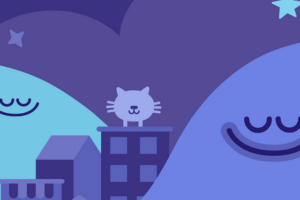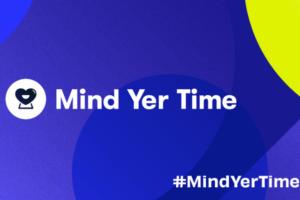The Impact of Social Media on Sleep and Mental Health
Every year, World Sleep Day is held to celebrate the importance of healthy sleep and raise awareness of sleep-related issues. It’s crucial that those of us working with children and young people understand how sleep impacts their overall wellbeing, especially related to the growing influence of social media.
In this blog, we’ll discuss the links between social media, sleep, and mental health. We’ll also share practical insights, resources, and support for helping young people improve their sleep hygiene.
Why is it important to get a good night’s sleep?
For children and young people, getting a good night’s sleep isn’t just about waking up rested. It’s vital for their mental, emotional, and physical development. Getting enough sleep helps with:
- Positive mental health
- Academic success
- Improved mood
- Healthy growth
- Enjoying life and interacting with others
- Healthy weight
On the flip side, not getting enough sleep can negatively impact all of these things.
How Much Sleep Are Young People Getting?
Despite the clear benefits of sleep, many young people are not getting enough rest.
The general recommendation for young people is around 8-10 hours of sleep per night, depending on their age. However, many aren’t meeting this.
As young people grow older, the average amount of sleep they get on a school night tends to decrease. According to the Scottish Government’s Health and Wellbeing Census (2021/22), the number of students who get more than 8 hours of sleep on school nights tends to decrease as they age.
The data also shows that pupils from more deprived areas get less sleep on average compared to their peers. This can significantly impact their mental health and wellbeing, contributing to health inequalities.
How does social media impact sleep?
Findings from a recent literature review highlight the areas where social media might be impacting children and young people’s sleep:
- Very high social media use: Research shows that very high social media (5 or more hours a day) is linked to negative sleep outcomes.
- Night-time use: Using social media late into the night is especially harmful. The blue light emitted by screens can interfere with sleep regulation, delaying sleep onset and reducing sleep quality. Some simple practices, like not using phones before bed, can make a big difference.
That’s not to say that all technology is bad for sleep. Many actually use it as a tool to help them sleep better. Apps like Sleepio and Headspace offer ‘sleepcasts’ (audio content to help people fall asleep), guided wind-downs, and relaxation techniques.
(Headspace Sleepcast)
Supporting Healthy Sleep: Resources and Strategies
Luckily, there are plenty of resources and supports that can help promote healthy sleep habits among young people:
- NHS Inform – Self-help for sleep problems: The NHS offers a self-help guide to managing sleep problems, including insomnia. The guide uses cognitive behavioural therapy (CBT) techniques to help young people improve their sleep hygiene.
- Sleepio – An online sleep improvement programme that delivers tailored and engaging advice 24/7.
- Scottish Sleep Support Line – Support from Sleep Action for families in Scotland for any child aged 18 months-18 years. Email sleepsupport@sleepaction.org
- Teen Zone – Information for young people from Sleep Action, including a ‘10 steps to better sleep’ guide.
- Mind Yer Time – A digital resource from Scottish Youth Parliament and Children’s Parliament designed to help children and young people use screens and social media positively and healthily.
- Balance Screen Use – A guide from Internet Matters to support healthy screen habits among children and young people.
You can download our Sleep and Social Media resource so you have all of this information to hand:
Aye Mind newsletter – Sleep and Social Media
If you would like to subscribe, email ggc.mhead@nhs.scot and request to be added to the Aye Mind newsletter distribution list.

Share this blog


